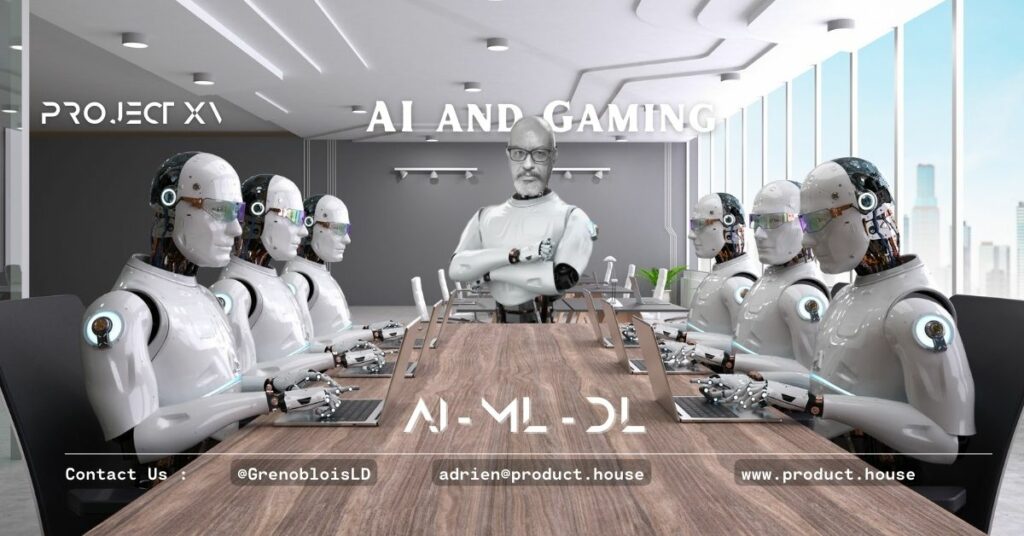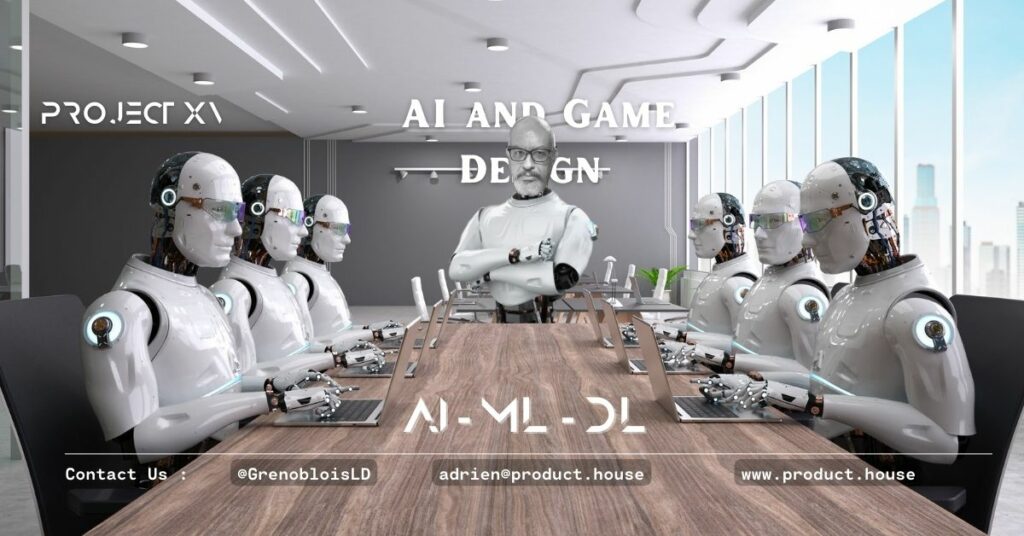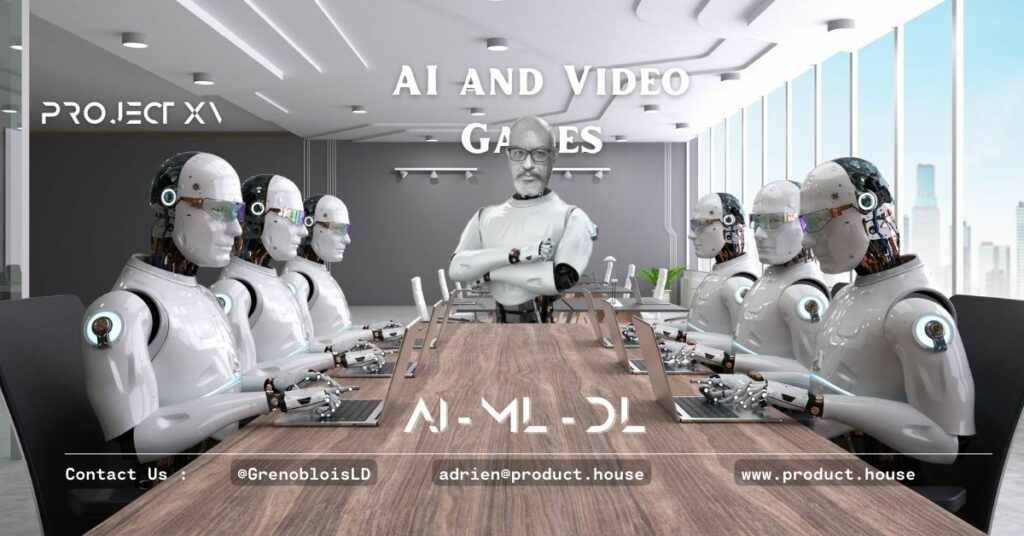AI and Gaming: How Artificial Intelligence Is Changing the Gaming Industry

The gaming industry has come a long way since the days of Pong and Space Invaders. Today’s games are highly immersive and realistic, with sophisticated graphics and complex gameplay. One of the driving forces behind these advancements is artificial intelligence (AI). In this article, we will explore the ways in which AI is changing the gaming industry.
AI in Game Development
Game development is a complex and time-consuming process that involves many different tasks. AI can be used to automate some of these tasks, such as level design, game balancing, and bug fixing. By using AI, developers can create games more efficiently and with fewer errors.
AI in Game Design
AI can also be used to improve game design. For example, AI can be used to create intelligent NPCs (non-playable characters) that are more realistic and engaging. AI can also be used to generate content, such as quests, items, and environments, which can help to keep the game fresh and interesting.
AI in Gameplay
AI can be used to enhance the gameplay experience. For example, AI can be used to create more challenging opponents that adapt to the player’s skill level. AI can also be used to create more realistic physics and animations, which can help to create a more immersive gaming experience.
AI in Player Behavior Analysis
AI can be used to analyze player behavior and preferences. This can help developers to create games that are more engaging and personalized. For example, by analyzing a player’s gameplay data, developers can determine which types of games, levels, or items are most popular, and then create more of these.
AI in Procedural Content Generation
Procedural content generation is the process of creating game content, such as levels and environments, using algorithms. AI can be used to create more complex and varied content, which can help to keep the game fresh and interesting. Procedural content generation can also be used to create more efficient games that take up less storage space.
FAQs:
Q: What is AI in gaming? A: AI in gaming refers to the use of artificial intelligence to improve game development, game design, gameplay, and player behavior analysis.
Q: How is AI used in game development? A: AI can be used to automate some of the tasks involved in game development, such as level design, game balancing, and bug fixing.
Q: How is AI used in game design? A: AI can be used to create intelligent NPCs, generate content, and improve game mechanics, among other things.
Q: How is AI used in gameplay? A: AI can be used to create more challenging opponents, create more realistic physics and animations, and improve the overall gaming experience.
Q: What is procedural content generation? A: Procedural content generation is the process of creating game content, such as levels and environments, using algorithms.
Q: How can AI be used to analyze player behavior? A: AI can be used to analyze a player’s gameplay data to determine which types of games, levels, or items are most popular, and then create more of these.
Q: What are some examples of AI in gaming? A: Some examples of AI in gaming include
NPCs that are more intelligent and realistic, procedural content generation, and more challenging opponents that adapt to the player’s skill level.
Q: Is AI the future of gaming? A: AI is certainly a part of the future of gaming, but it is unlikely to replace human creativity altogether.
Q: What are some potential case studies of AI in gaming? A: Some potential case studies of AI in gaming include the use of AI in game design for “Middle-earth: Shadow of War” and the use of AI in procedural content generation for “No Man’s Sky.”
Q: Who are some experts in the field of AI in gaming? A: Some experts in the field of AI in gaming include Julian Togelius, Tommy Thompson, and Sebastian Risi.
Q: What is the impact of AI on the gaming industry? A: The impact of AI on the gaming industry is significant, and it has opened up new possibilities for developers and players. AI can help to improve game development, game design, gameplay, and player behavior analysis.
List of Resources:
- AI Game Dev (https://aigamedev.com/)
- The AI Games (https://theaigames.com/)
- AI and Games (https://aiandgames.com/)
- Game AI Pro (http://www.gameaipro.com/)
- Game Developers Conference (https://www.gdconf.com/)
List of Books:
- Artificial Intelligence for Games by Ian Millington
- Game AI Pro 2: Collected Wisdom of Game AI Professionals edited by Steven Rabin
- Behavioral Mathematics for Game AI by Dave Mark
- Game Programming Gems 8 edited by Adam Lake
List of Relevant Experts:
- Julian Togelius (https://twitter.com/togelius)
- Tommy Thompson (https://twitter.com/tommythomp)
- Sebastian Risi (https://twitter.com/sebastianrisi)
- Alex J. Champandard (https://twitter.com/alexjc)
- Katharine Neil (https://twitter.com/katharineneil)
List of Potential Case Studies:
- “Middle-earth: Shadow of War” – AI in game design
- “No Man’s Sky” – Procedural content generation
- “Halo” – AI in gameplay
- “StarCraft II” – AI in game design and gameplay
- “Horizon Zero Dawn” – AI in game design and gameplay
List of Examples of Use:
- NPCs that are more intelligent and realistic
- Procedural content generation
- Challenging opponents that adapt to the player’s skill level
- Realistic physics and animations
- Player behavior analysis for more engaging and personalized games
Glossary:
- Artificial intelligence (AI): The simulation of human intelligence processes by machines, especially computer systems.
- Procedural content generation: The process of creating game content, such as levels and environments, using algorithms.
- Non-playable character (NPC): A character in a game that is controlled by the computer rather than the player.
- Game balancing: The process of ensuring that a game is challenging and balanced for all players.
- Bug fixing: The process of identifying and fixing errors in a game.
- Physics engine: A software component that simulates physical systems in a game.
- Machine learning: A subset of AI that involves the use of algorithms to enable machines to learn from data, without being explicitly programmed.
- Neural network: A set of algorithms modeled after the human





